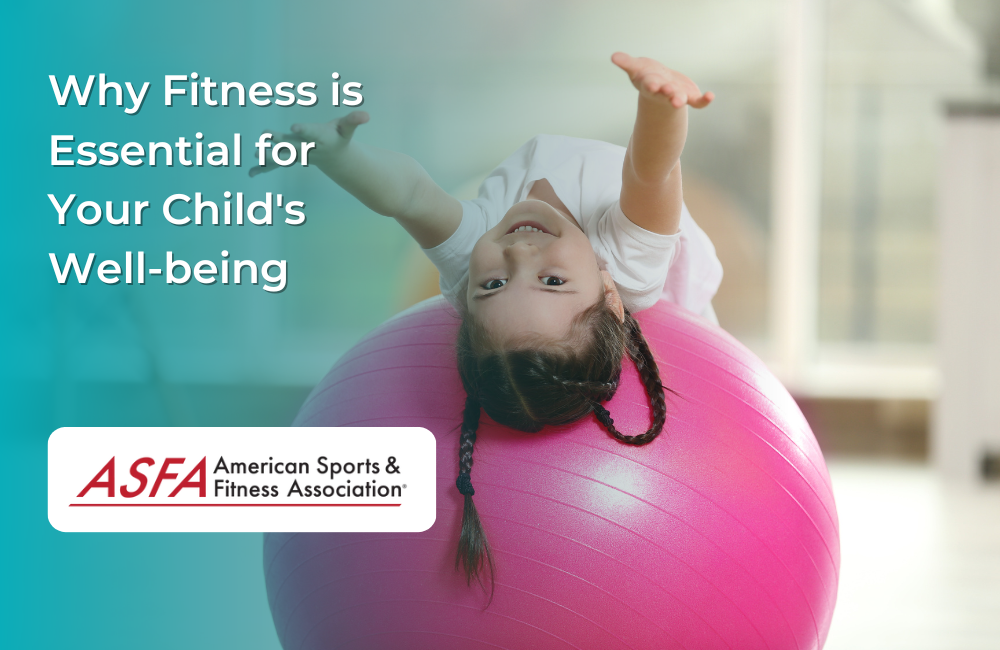
Why Fitness is Essential for Your Child's Well-being
If you're a parent, you know the importance of providing your child with a healthy, balanced diet and giving them plenty of opportunities to get active. With so many new studies showing the positive impact of physical activity on children's brains and bodies, it's hard to argue against these practices—especially when they have such positive results.
Physical fitness can increase focus and help children develop lifelong healthy habits.
Kids need to stay active to avoid obesity, a major health problem among children today. The benefits of exercise are not limited to physical health; they also include emotional and mental health benefits. Physical activity boosts self-esteem and confidence in children with special needs, as well as those who have no physical limitations at all!
Physical activity allows kids to interact with their peers and build confidence.
Some kids are shy and find it easier to interact with others through sports. Some kids are more confident when physically active, while others feel better about themselves after eating healthy or exercising regularly. Most children need at least one hour of physical activity every day. Still, some exercises may be led by their school or coaches if they can't participate in outside activities on their own time (or if there aren't enough options available). Kids should try different activities until they find one that suits them best! Sports can help kids build confidence in their abilities, making them feel better.
Kids need to stay active to avoid obesity.
Obesity is a serious health problem that causes many health problems, including heart disease and diabetes. It's caused by eating too much and exercising too little.
To prevent obesity:
- Eat less junk food and more fresh fruits and vegetables instead of candy bars or potato chips (junk food).
- Get at least 60 minutes of moderate-intensity physical activity on most days of the week (moderate intensity). This can be done by walking briskly, swimming laps in a pool, playing tennis or other racquet sports with friends or family members--anything that gets your heart rate up for 30 minutes at a time! If you have trouble fitting 60 minutes into your schedule each day, try breaking it into two 30-minute sessions separated by an hour or two breaks at some point during the day (e.g., 8 AM - 10 AM; 1 PM - 3 PM).
The benefits of exercise are not limited to physical health.
Physical activity can help kids with ADHD, autism, depression, and anxiety. It also helps with learning disabilities and mental health issues like PTSD.
The benefits of exercise are so great that children need to get active as early as possible in their lives:
Physical activity boosts self-esteem and confidence in children with special needs.
Physical activity is a great way for children with special needs to interact with their peers. It helps them build confidence, as well. It's never too early to start teaching your child about nutrition and physical fitness by encouraging them to eat healthy foods and participate in fun activities that get them moving!
Try these ideas:
- Encourage your child to walk around the neighborhood or play at the park daily. You can also make homemade toys from cardboard boxes, balls, string, and other items you find around the house (or buy inexpensive ones). These are fun ways for kids of all ages--including those with special needs--to get active while developing their imaginations!
- Make sure everyone eats breakfast before heading off into the day; pack nutritious snacks like fruits or vegetables if needed; plan meals so there isn't any rush when it comes time for dinner later on in the evening hours - this way, everyone gets proper nutrition throughout the entire day whether they're able...
It's never too early to teach your child nutrition and physical fitness.
If you don't teach them how to eat right, they will likely be unhealthy as adults. This can lead to problems like heart disease, diabetes, and obesity.
You must teach them how important it is for them to stay active so they can maintain their health throughout life. If you allow your kids to sit around all day watching television or playing video games instead of going outside and running around with friends, then they won't get any exercise!
Takeaway:
As a parent, it's important to realize that fitness is essential to a child's well-being. Fitness can help children develop physical, mental, and emotional health.
It helps them focus in school and have more energy during the day. It also helps prevent obesity which can cause long-term health problems such as diabetes or heart disease.
For parents with special needs, kids must be physically active so they don't get bored being at home all day long while their friends are out playing sports or doing other activities with their families. These kids need extra encouragement from their parents, so they'll also want to participate in physical activities outside school hours!
Conclusion
Starting early is the key to ensuring your child stays fit and healthy. The sooner you start teaching them about nutrition and physical fitness, the better off they'll be. Even if they're still young, you can get them moving in plenty of ways! You don't have to enroll them in an expensive gym membership or even buy any equipment--make sure they spend some time each day doing something active outdoors with family members or friends (like walking around the neighborhood). This will give kids a chance to work up a sweat and interact with others in positive ways that promote social development and self-esteem.




